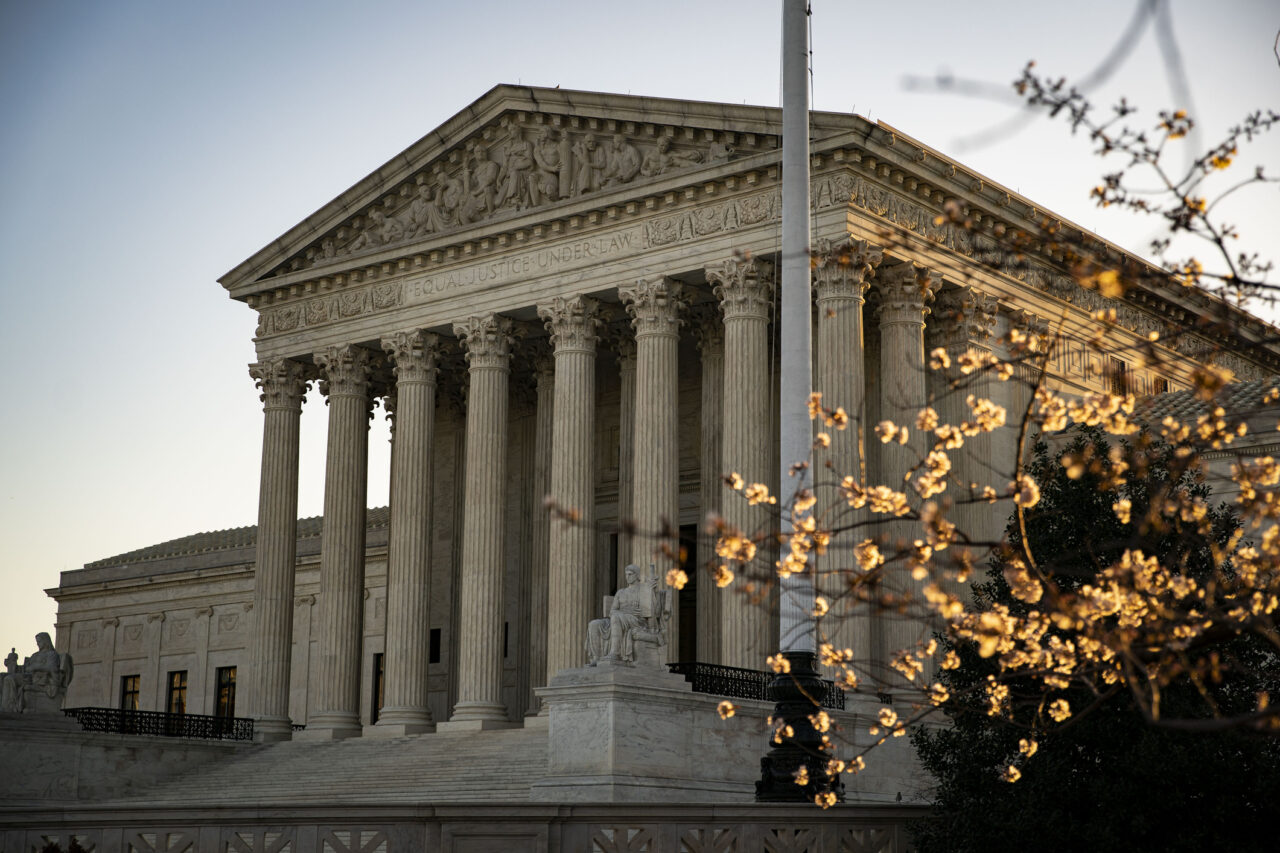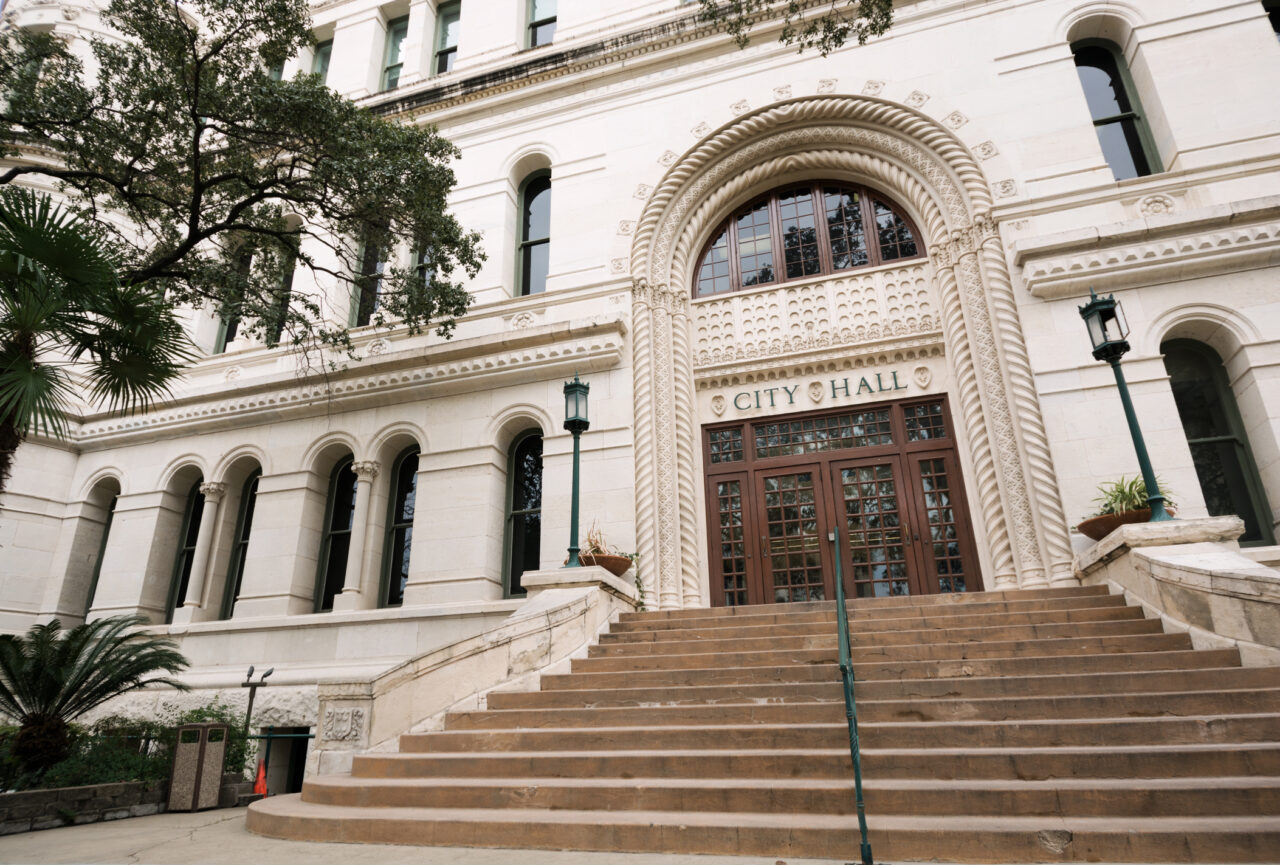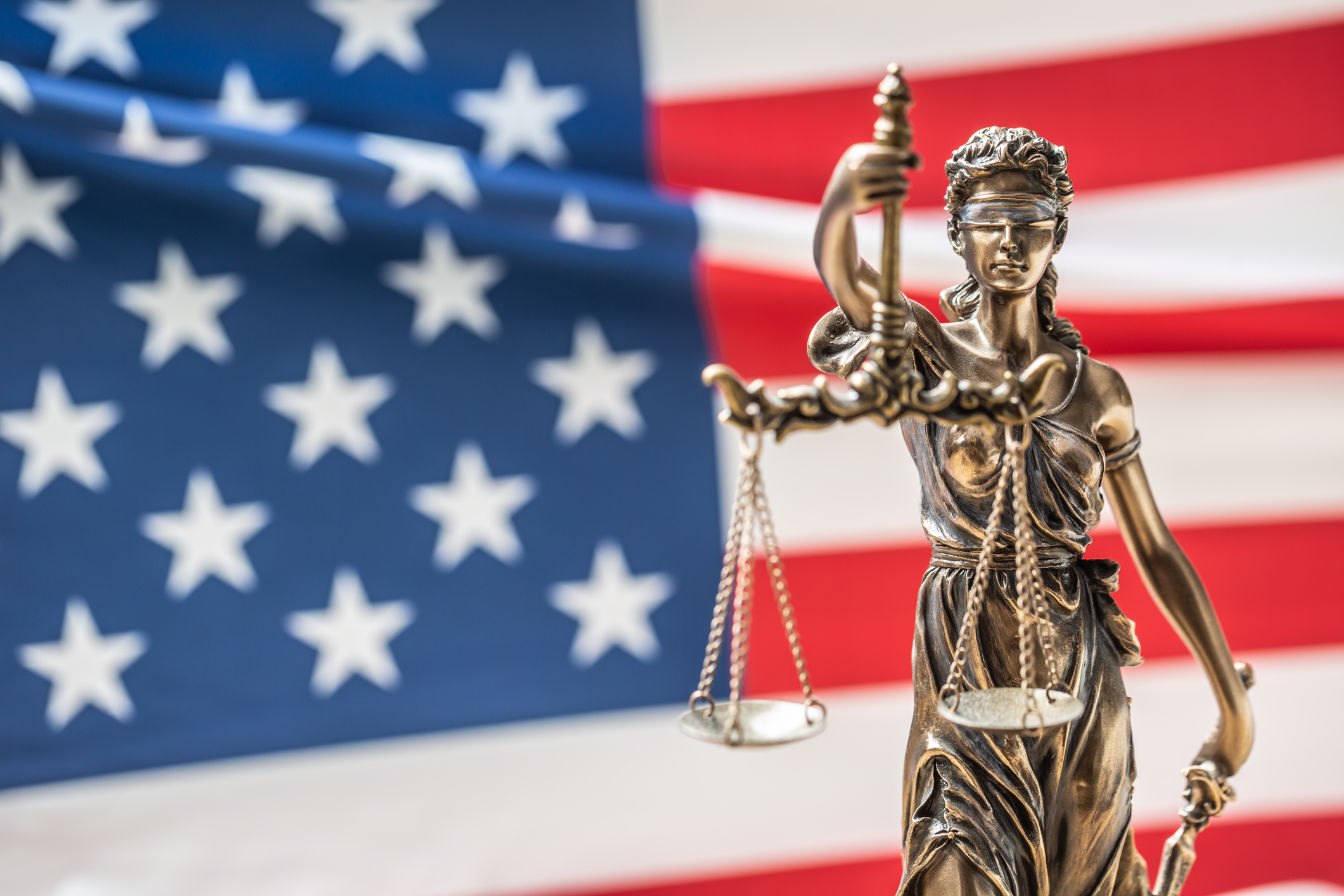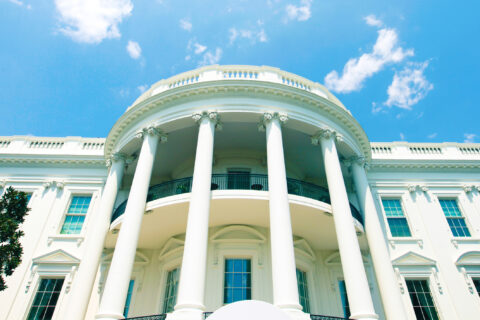In their 2023-2024 term, the Supreme Court of the United States (SCOTUS) issued decisions that directly impact local governments on issues including the constitutionality of collecting impact fees, local authority to make regulations on the matter of homelessness, Title VII employment issues and public officials’ usage of social media. Consistent with our legal advocacy and through our partnership with the Local Government Legal Center (“LGLC”), the National League of Cities (NLC) participated in amicus briefs presenting sound and persuasive legal arguments to the court on principles and issues important to good municipal government.
This blog breaks down the most significant SCOTUS rulings and their implications for local governments from this past term. Understanding these decisions is essential for local officials to navigate the changing legal landscape and effectively serve their communities.
Grants Pass v. Johnson
The issue in this case was whether the City of Grants Pass’ enforcement of an ordinance banning public camping against involuntarily homeless individuals violated the Eighth Amendment’s protection against cruel and unusual punishment.
The Supreme Court’s decision concluded the Eighth Amendment’s Cruel and Unusual Punishment Clause does not prohibit the enforcement of generally applicable laws regulating camping on public property. The majority stressed that the cruel and unusual punishment clause has largely applied to legal issues relating to methods of punishment and not whether certain conduct can be criminalized. Additionally, the majority reasoned that the Eighth Amendment “does not authorize federal judges… to dictate this Nation’s homelessness policy.”
This decision was a major win for local governments as it provided clarity around whether local governments have the authority to regulate the health and safety of their residents in accordance with local needs and conditions. The case itself highlighted the complexities of the homeless crisis across the nation but ultimately turned the hard task of solving the homeless crisis to state and local policymakers, where it belongs, with resource support from the federal government.

NLC filed a brief (PDF) in this case along with the founding partners of the LGLC. This brief was cited an unprecedented 18 times in the court’s opinion. You can learn more about the details of the case and the decision in this recent NLC blog.
Lindke v. Freed
The issue in this case was whether a public official’s social media activity is considered “state action” subject to the First Amendment.
The Supreme Court held in a unanimous decision that a public official’s social media posts are state action “only if the official (1) possessed the actual authority to speak on the State’s behalf, and (2) purported to exercise that authority when [they] spoke on social media. The court also noted that the line between private and state action can be “difficult to draw” but the court emphasized that public officials have their own First Amendment rights, including rights to speak about their employment, that they do not relinquish simply by becoming public officials.
The court’s decision also provided guidance and hypotheticals, which may prove to be useful to local governments as they update their policies and train staff on the implications of this ruling. NLC filed an amicus brief (PDF) in this case along with the LGLC. You can learn more about the details of this decision in this NLC blog. Along with partners of the LGLC, NLC also hosted a webinar about the outcome of this case and published a FAQ guide (PDF) to help local officials understand the ruling.
United States v. Rahimi
The issue in this case was whether a federal statute that prohibits the possession of firearms by persons subject to domestic violence restraining orders violated the Second Amendment.

In an 8-1 decision, the Supreme Court found that this prohibition does not violate the Second Amendment. The court applied the New York State Rifle & Postol Assn., Inc. v. Bruen’s ‘history and tradition’ test, and concluded that since the founding of the nation, the regulation of firearms has included “provisions preventing individuals who threaten physical harm to others from misusing firearms.” The majority found that viewing together two earlier firearm laws in English and U.S. history, they “confirm… When an individual poses a clear threat of violence to another, the threatening individual may be disarmed”. The earlier laws in history were found to be sufficiently similar to the federal statute and therefore, is a constitutional regulation.
NLC filed a brief (PDF) in this case along with the United States Conference of Mayors and the International Municipal Lawyers Association consistent with provisions in our National Municipal Policy and in support of the direct impact on city first responders. Importantly for local governments, domestic violence incidents are among the most dangerous for law enforcement and other first responders.
Muldrow v. City of St. Louis
The issue in this employment law case was whether Title VII prohibits discrimination in transfer decisions absent a separate court determination that the transfer decision caused a “materially significant disadvantage”.
The court ruled in another unanimous decision that an employee who challenges a job transfer under Title VII of the Civil Rights Act of 1964 need not show the transfer brought about “material harm” to bring forth a successful claim against their employer. However, the court concluded that the claimant must show “some harm from a forced transfer” although that harm need not be serious or significant.
In their decision, the court acknowledged the sweeping nature of their ruling and noted that their holding “lowers the bar Title VII plaintiffs must meet”. Local governments should consult with their city attorney and human resource departments to examine their policies surrounding employee transfers and ensure proper training is conducted to limit liability. To read more about the decision, read this NLC blog article. NLC also filed an amicus brief (PDF) in this case with partners of the LGLC.
Loper Bright Enterprises v. Raimondo
Broadly speaking, the issue in this case was whether the court should overrule a previous decision in Chevron v. Natural Resources Defense Council or at least clarify whether statutory silence creates an ambiguity that requires deference to the agency’s interpretation.
Under the previously applicable Chevron doctrine, if Congress had not directly addressed the question at the center of a dispute on the administration of federal laws, courts were required to defer and uphold the pertinent federal agency’s interpretation of the statute so long it was reasonable. In this decision, the majority struck down this doctrine and held that the Chevron doctrine violated the Administrative Procedure Act (“APA”). The court determined that the APA requires courts to exercise independent judgment in determining whether an agency has acted within their statutory authority for ambiguous laws, and courts should not defer to an agency’s interpretation alone but may still “seek aid” from the agency in their determination.
This decision is likely to have far-reaching effects on various issues, from environmental regulations to healthcare costs. However, what this means exactly for local governments is not certain. There are likely to be areas where courts will be more willing to strike down agency regulations that benefit local governments as regulated entities, but other times where this action may hurt local governments and their community priorities.

Scheetz v. El Dorado County
The issue in this case was whether legislative monetary exactions (impact fees) imposed by local governments as a condition for a building permit are subject to the “essential nexus” and “rough proportionality” requirements from previously established cases (Nollan v. California Coastal Commission and Dolan v. City of Tigard, Oregon).
In a unanimous decision, the court narrowly determined that legislatively enacted impact fees are not exempt from the requirements listed above. As such, local governments that impose impact fees are now subject to a standard requiring them to demonstrate the relationship and relative impact of the development on the community.
Importantly, for local governments that issue impact fees, this decision does not prevent local governments from enacting reasonable permitting conditions, including impact fees, via passed legislation. However, given this recent decision, local governments will want to ensure that legislatively imposed impact fees comply with the requirements from the Nollan and Dolan cases. To help local leaders understand the impact of this decision, NLC drafted this blog article. NLC filed an amicus brief (PDF) in this case with the LGLC and the City/County of San Francisco.
Gonzalez v. Trevino
The issue in this case was whether objective evidence was enough to meet the probable cause exception in Nieves v. Barlett to move forward with a retaliatory arrest claim.
Under the 2019 decision in Nieves v. Barlett, the court ruled a plaintiff can generally only bring forth a retaliatory arrest claim if they can show there was no probable cause for the arrest. In this decision, the court concluded that a plaintiff may show other types of objective evidence, and the 5th Circuit’s prior ruling had construed the Nieves exemption too broadly. The court reasoned that “[a]lthough the Nieves exception is slim, the demand for virtually identical and identifiable comparators goes too far.” The only express limit on the type of evidence a plaintiff can present is that it must be objective and the survey that Gonzalez made of the types of crimes charged under the statute satisfied the requirement.

The decision means that more plaintiffs may be able to bring a retaliatory arrest claim under the Nieves exception by utilizing any form of objective evidence. However, the court still emphasized that the exception is narrow. Local governments should continue to defend these claims on that ground. NLC filed a brief (PPF) in this case with our partners at the LGLC arguing for a narrow and objective exception under Nieves.
Chiaverini v. City of Napoleon
The issue, in this case, was whether Fourth Amendment malicious-prosecution claims could proceed under the charge-specific rule so long as other charges brought alongside the baseless charge are supported by probable cause.
In their decision, the court narrowly found that probable cause for one charge in a criminal proceeding does not defeat a claim for malicious prosecution under the Fourth Amendment as that claim relates to another baseless charge. In other words, valid charges cannot insulate a local government from a Fourth Amendment malicious prosecution claim related to invalid charges. NLC filed a brief (PDF) in this case with our partners at the LGLC.
The Court also issued two additional decisions of interest to local governments in Ohio v. EPA and Harrington v. Purdue Pharma.
- In Ohio v. EPA, the Supreme Court granted a group of states’ application for a stay of the EPA’s Good Neighbor Rule, which pertains to emissions control measures for those states. The case came to the court on its emergency docket and is not a decision on the merits. The holding signifies that the court’s majority believed the states were likely to prevail on the merits of their claims that the EPA’s Federal Implementation Plan for nitrous oxide emissions control measures, which included “downwind ozone air quality improvements,” was arbitrary and capricious under the Administrative Procedure Act and therefore unlawful.
- In Harrington v. Purdue Pharma, the court ruled that the Bankruptcy Code “does not authorize a release and injunction that, as part of a plan of reorganization under Chapter 11, effectively seek to discharge claims against a non-debtor without the consent of affected claimants.” The “non-debtor” in this instance was a group of Sackler family members–formerly owners, officers, and directors of Purdue–who transferred to themselves more than $11 billion from the company as they saw the specter of massive litigation arising. In order to avoid personal liability arising from their role in Purdue’s irresponsible and fraudulent practices in the marketing and sale of OxyContin, they offered to contribute $6 billion of those assets back into the Purdue bankruptcy. In exchange for that contribution, they would be released from all personal liability relating to Purdue, its products, and their ostensibly fraudulent transfer of money from the company. Some observers predict that this decision will effectively destroy the Chapter 11 proceeding and unleash multiple claims against the Sacklers.
Learn More
NLC and the LGLC recently hosted a webinar with legal experts reviewing the important decisions of the SCOTUS term impacting local governments.






